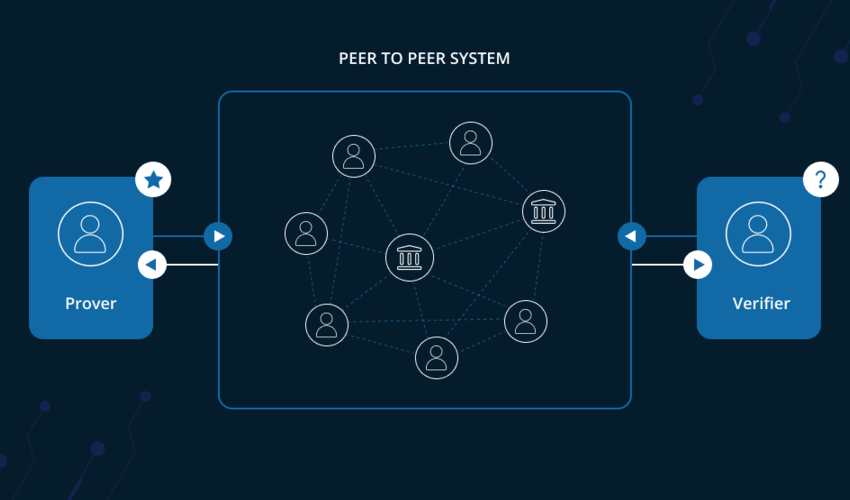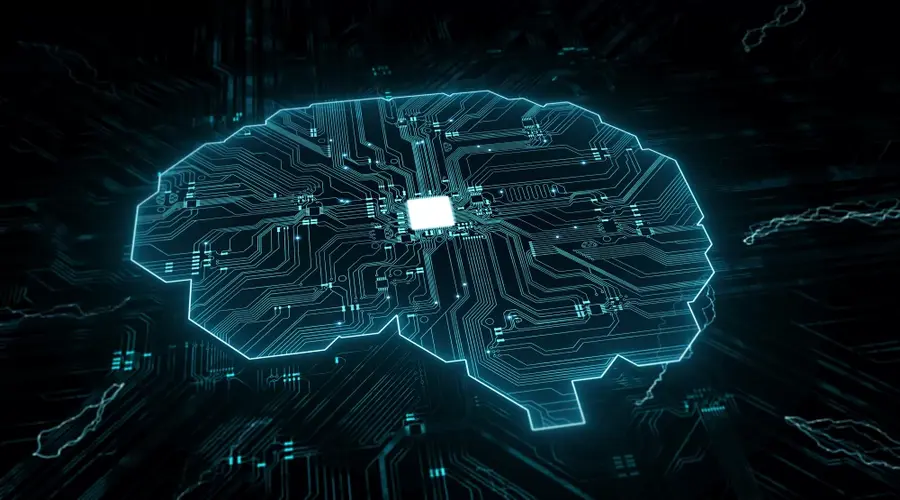
Zero-Knowledge Proofs: Privacy and Scalability in Layer 2
Introduction
In the rapidly evolving landscape of blockchain technology, privacy and scalability have emerged as crucial considerations. With Layer 2 solutions gaining traction, a powerful tool called Zero-Knowledge Proofs has become increasingly relevant. This article delves into the concept of Zero-Knowledge Proofs and explores their role in ensuring privacy and scalability in Layer 2 solutions.
Understanding Zero-Knowledge Proofs
Zero-Knowledge Proofs refer to cryptographic protocols that allow one party (the prover) to demonstrate knowledge of certain information to another party (the verifier) without revealing any additional details. The prover convinces the verifier that a specific statement is true without disclosing any underlying data or secrets. This technology enables privacy-preserving transactions and interactions, making it a valuable tool in various applications.
Zero-Knowledge Proofs find applications in domains such as digital identity verification, secure data sharing, and anonymous transactions. They enable parties to verify information without revealing sensitive details, which enhances privacy, security, and user control.
Layer 2 Solutions: An Overview
Layer 2 solutions offer a framework to scale blockchain networks by processing transactions off-chain while retaining the security guarantees of the underlying Layer 1 blockchain. Layer 1 blockchains, such as Ethereum and Bitcoin, face limitations in terms of transaction throughput and latency. Layer 2 solutions aim to address these challenges and enable higher transaction volumes, faster confirmation times, and lower fees.
Layer 2 solutions achieve scalability by aggregating multiple transactions and submitting them as a single batch to the Layer 1 blockchain, reducing the computational and storage burden. However, as transactions move off-chain, privacy concerns arise, necessitating the incorporation of privacy-preserving mechanisms like Zero-Knowledge Proofs.
Privacy in Layer 2: The Need for Zero-Knowledge Proofs
Privacy is a critical aspect of blockchain networks, as transactions recorded on the blockchain are visible to all participants. Layer 2 solutions bring privacy challenges as transactions occur outside the main blockchain. Zero-Knowledge Proofs offer a solution by allowing participants to validate transactions without exposing sensitive details, preserving the confidentiality of user interactions.
With Zero-Knowledge Proofs, Layer 2 solutions can provide privacy features such as concealing transaction amounts, sender and receiver identities, and even the nature of the transaction itself. This heightened privacy protection boosts user confidence, encourages wider adoption, and opens doors to various use cases, including financial applications and supply chain management.
Privacy is a crucial concern in Layer 2 solutions, as transactions occur off-chain and privacy guarantees become more challenging to maintain. This is where Zero-Knowledge Proofs play a pivotal role. Zero-Knowledge Proofs enable participants to validate transactions without revealing sensitive details, ensuring confidentiality and preserving user privacy. With Zero-Knowledge Proofs, transaction amounts, sender and receiver identities, and the nature of the transaction itself can be concealed.
This heightened privacy protection not only safeguards personal information but also addresses concerns related to financial transactions, supply chain management, and other applications. Zero-Knowledge Proofs empower individuals to engage in transactions with confidence, knowing that their sensitive information remains hidden from prying eyes. By incorporating Zero-Knowledge Proofs into Layer 2 solutions, privacy concerns can be effectively addressed, enabling the development of more secure and privacy-focused blockchain applications.

Scalability in Layer 2: Enhancing Network Performance
Layer 1 blockchains often face scalability issues due to limited transaction throughput and increased network congestion. Layer 2 solutions help overcome these limitations by reducing the number of transactions directly processed on the main blockchain. By aggregating multiple transactions into a single batch, Layer 2 solutions enhance network scalability.
Zero-Knowledge Proofs play a vital role in ensuring scalability by compressing large amounts of data into concise proof statements. These proofs can be verified quickly and efficiently, reducing the computational requirements of the network. Consequently, Zero-Knowledge Proofs contribute to improving transaction speeds, reducing fees, and enhancing overall network performance.
Zero-Knowledge Proofs in Layer 2: Case Studies
Several Layer 2 solutions leverage Zero-Knowledge Proofs to achieve both privacy and scalability. ZK Rollups, for instance, bundle multiple transactions into a single proof, which is then submitted to the main blockchain for verification. This approach combines the benefits of Layer 2 scalability with the privacy-preserving properties of Zero-Knowledge Proofs.
Optimistic Rollups, on the other hand, strike a balance between scalability and security. They leverage Zero-Knowledge Proofs to generate succinct fraud proofs that challenge incorrect transactions, ensuring the integrity of the network while maintaining efficiency.
Plasma, a Layer 2 framework for Ethereum, employs Zero-Knowledge Proofs to enable scalable and private transactions. Plasma chains create an additional layer of security and privacy by allowing transactions to occur off-chain while retaining the ability to settle disputes on the main blockchain.
Advantages and Limitations of Zero-Knowledge Proofs in Layer 2
Zero-Knowledge Proofs offer several advantages when integrated into Layer 2 solutions. They provide privacy guarantees by hiding sensitive information, foster scalability by reducing computational overhead, and enhance security by allowing fraud proofs. Furthermore, Zero-Knowledge Proofs enable interoperability and can be combined with other cryptographic techniques to create robust Layer 2 solutions.
- Privacy Enhancement: Zero-Knowledge Proofs offer a powerful tool for enhancing privacy in Layer 2 solutions. By allowing users to validate transactions without revealing sensitive information, such as transaction amounts or user identities, Zero-Knowledge Proofs ensure confidentiality and protect user privacy.
- Scalability Improvement: Layer 2 solutions aim to address scalability challenges faced by Layer 1 blockchains. Zero-Knowledge Proofs play a vital role in enhancing scalability by compressing large amounts of data into concise proof statements. This reduction in data size enables faster verification and enhances overall network performance.
- Security and Integrity: Zero-Knowledge Proofs contribute to the security and integrity of Layer 2 solutions. They enable the generation of fraud proofs, which can be used to challenge incorrect transactions and ensure the reliability of the network. This feature enhances the trustworthiness of Layer 2 solutions and encourages wider adoption.
- Interoperability: Zero-Knowledge Proofs can be combined with other cryptographic techniques to create interoperable Layer 2 solutions. By leveraging Zero-Knowledge Proofs alongside techniques like multi-party computation or homomorphic encryption, developers can enhance the capabilities and compatibility of Layer 2 protocols.
Limitations of Zero-Knowledge Proofs in Layer 2:
- Computational Intensity: Zero-Knowledge Proofs can be computationally intensive, requiring significant processing power. The setup and verification of proofs may involve complex cryptographic operations, which can impact transaction speeds and increase resource requirements.
- Trusted Setups: Some implementations of Zero-Knowledge Proofs require trusted setups, which can introduce potential vulnerabilities if not conducted properly. Trusted setups are critical to the security of Zero-Knowledge Proofs, and their execution and management must be carefully executed to maintain trust and mitigate risks.
- Usability Challenges: Zero-Knowledge Proofs can present usability challenges for users. Understanding and interacting with Zero-Knowledge Proofs may require technical knowledge and familiarity with cryptographic concepts. Improving tooling and user-friendly interfaces can help overcome these challenges and make Zero-Knowledge Proofs more accessible.
- Development Complexity: Integrating Zero-Knowledge Proofs into Layer 2 solutions requires expertise in cryptography and software development. Designing and implementing Zero-Knowledge Proofs correctly can be challenging, and any flaws or vulnerabilities could compromise the security and privacy of the system.
However, Zero-Knowledge Proofs also come with certain limitations. They can be computationally intensive, requiring significant processing power. The setup and verification of proofs may involve complex cryptographic operations, which can affect transaction speeds. Additionally, the design and implementation of Zero-Knowledge Proofs require careful attention to avoid potential vulnerabilities or flaws.
Future Developments and Adoption
Zero-Knowledge Proofs continue to evolve, with ongoing research and development efforts aimed at improving their efficiency, security, and usability. Researchers are exploring techniques like zkSNARKs and zkSTARKs, which offer stronger security guarantees while reducing computational requirements.
Wider adoption of Zero-Knowledge Proofs in Layer 2 solutions depends on addressing existing challenges, including scalability, interoperability, and user experience. Innovations such as trusted setups, improved tooling, and user-friendly interfaces can contribute to accelerating adoption and mainstream usage of Zero-Knowledge Proofs in Layer 2 solutions.
Conclusion
Zero-Knowledge Proofs have emerged as a powerful tool for addressing privacy and scalability challenges in Layer 2 solutions. By allowing secure and private transactions off-chain, these cryptographic protocols enhance user privacy, improve network scalability, and enable a wide range of blockchain applications. As the technology continues to evolve, Zero-Knowledge Proofs have the potential to revolutionize the way we interact with blockchain networks, making them more efficient, private, and user-friendly.
FAQs
Q1: Are Zero-Knowledge Proofs only applicable to Layer 2 solutions? Zero-Knowledge Proofs can be used in various contexts, including Layer 1 blockchains, but their integration in Layer 2 solutions is particularly relevant. Layer 2 solutions face specific privacy and scalability challenges, which Zero-Knowledge Proofs help address.
Q2: How do Zero-Knowledge Proofs ensure the privacy of transactions? Zero-Knowledge Proofs enable transaction verification without revealing sensitive details. They allow participants to prove the validity of a statement without disclosing additional information, such as transaction amounts or identities.
Q3: What are the risks associated with using Zero-Knowledge Proofs? While Zero-Knowledge Proofs offer significant benefits, their implementation must be carefully designed and audited to avoid potential vulnerabilities. Incorrectly implemented or weak Zero-Knowledge Proofs could compromise the privacy and security of transactions.
Q4: Can Zero-Knowledge Proofs be combined with other cryptographic techniques? Yes, Zero-Knowledge Proofs can be combined with other cryptographic tools to create even more robust and secure solutions. Techniques such as multi-party computation and homomorphic encryption can complement Zero-Knowledge Proofs to enhance privacy and security.
Q5: Where can I learn more about Zero-Knowledge Proofs and Layer 2 solutions? To delve deeper into Zero-Knowledge Proofs and Layer 2 solutions, you can explore research papers, academic journals, and online resources dedicated to blockchain technology and cryptography. Additionally, attending blockchain conferences and engaging with the developer community can provide valuable insights into the latest advancements in this field.
